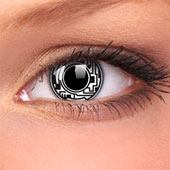Wearable tech in medicine is a cool idea. We’ve already got google glass and many physicians are using them in hospitals. Everyone will soon see  them in hospitals and clinics worldwide. But what if you could harness the power of wearable monitoring yourself? We’ve seen it before in futuristic sci-fi movies where you can see your heart rate and respiration rate on a virtual heads up display which you can only see.
them in hospitals and clinics worldwide. But what if you could harness the power of wearable monitoring yourself? We’ve seen it before in futuristic sci-fi movies where you can see your heart rate and respiration rate on a virtual heads up display which you can only see.
Google announced on Tuesday that they would partner with Novartis to develop a wearable contact lens that could monitor blood sugar levels. The future is closer than you think right? Alcon, Novartis’ eye care division, said they would look to create products from Google’s prototype. Their prototype uses miniature sensors and a ratio antenna thinner than a human hair in order to track glucose levels.
Another product they have in development is a lens that would work much like an autofocus on a camera. It would help the eye adjust to near objects and far objects. This large push from Google does not come as a surprise as they are looking to expand into other sectors and target new growth areas.
Researchers believe that the wearable health market will represent at least $2 billion in revenue by 2018. There are already many technologies on the market that encompass the category of “wearable health gadgets”. These include: fitbit, jawbone up, Nike Fuel. They are designed to be stylish but they also monitor steps, count calories, and encompass many other fitness metrics.
At some point wearable technology may be regulated as a medical device instead of being a consumer wellness product. This would help significantly decrease the cost of healthcare and would allow providers to track and observe data in real time. This would provide a much deeper understanding into a patient’s behavior and physicians would be able to make personalized suggestions based on this.
The future is here and we have to take full advantage of all of the technology at our disposal and make the best of it. With all this, we can greatly improve our health and prevent healthcare costs from rising!

